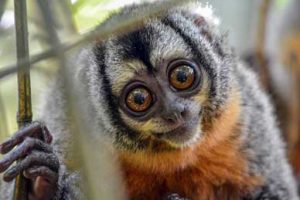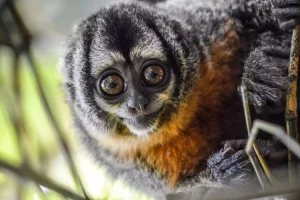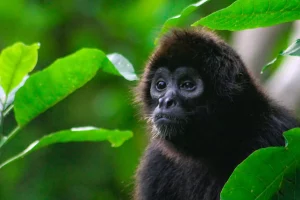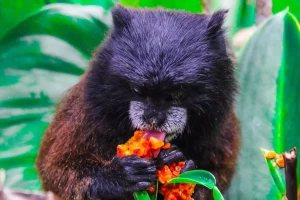Laws
Throughout Peru there are large areas of forest almost empty of wildlife due to overhunting. Large-bodied primates, such as woolly monkeys and spider monkeys, are often the first species to disappear as their large size and conspicuous nature makes them particularly attractive to hunters. Primates in general, as well as birds, are also routinely sold in local, national and international markets as pets, often suffering from malnutrition and disease, and kept in terrible conditions. Hundreds of thousands of animals are illegally hunted in Peru each year, and it is estimated that for every wild pet that is sold in a market, 8 or 9 others of the same species have died during capture or transport.
Since 2007 we have organized and participated in the confiscation, rescue, transport to rescue centres, care, and often release of thousands of wild animals across Peru. Animals seized from the illegal trade suffer from a variety of physical and emotional problems related to the terrible conditions they were subjected to. We constantly provide veterinary and general care to animals, some of whom stay under our care for extended periods until they are strong enough to be transported to a rescue centre. We try to send each individual to the most suitable centre possible to ensure that their future is as promising as it can be.




